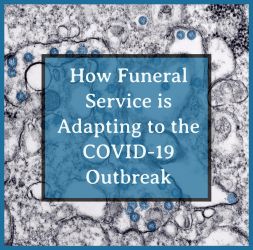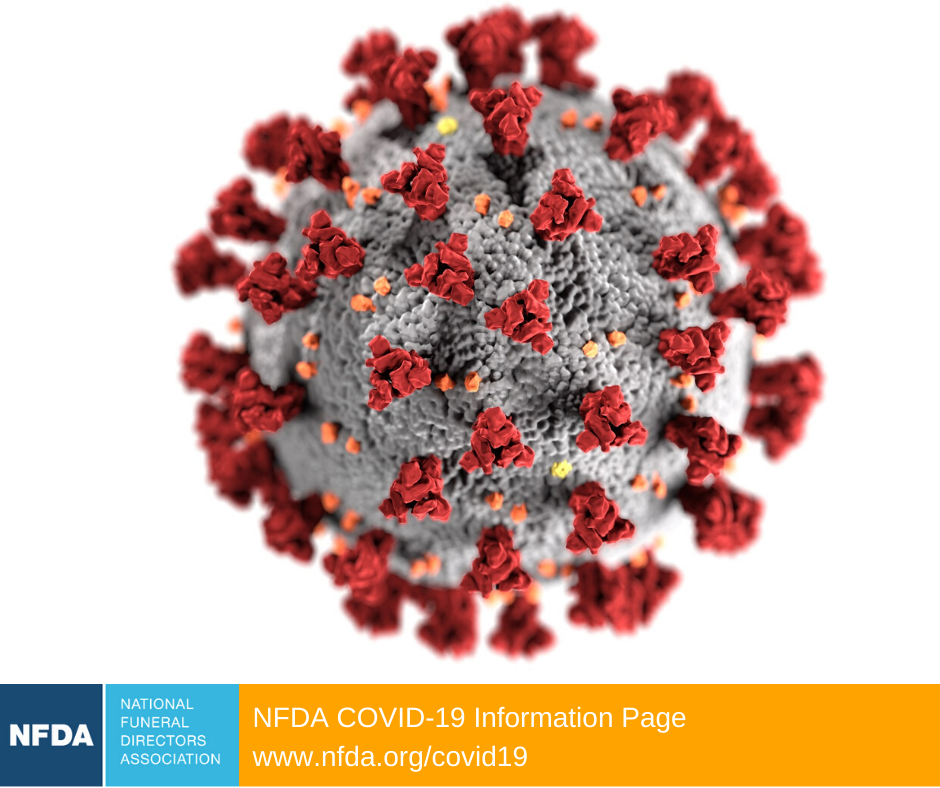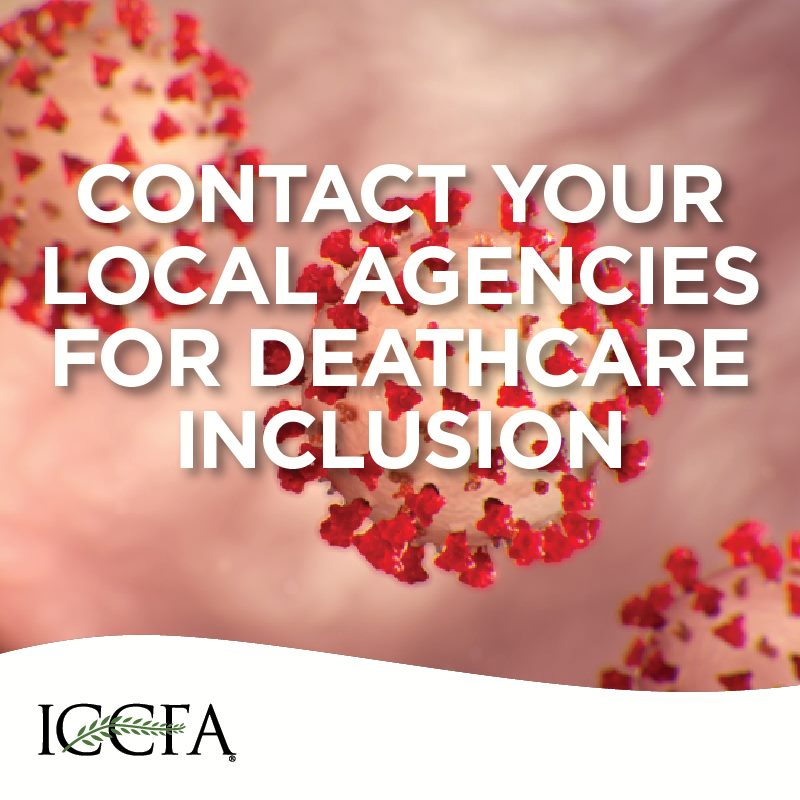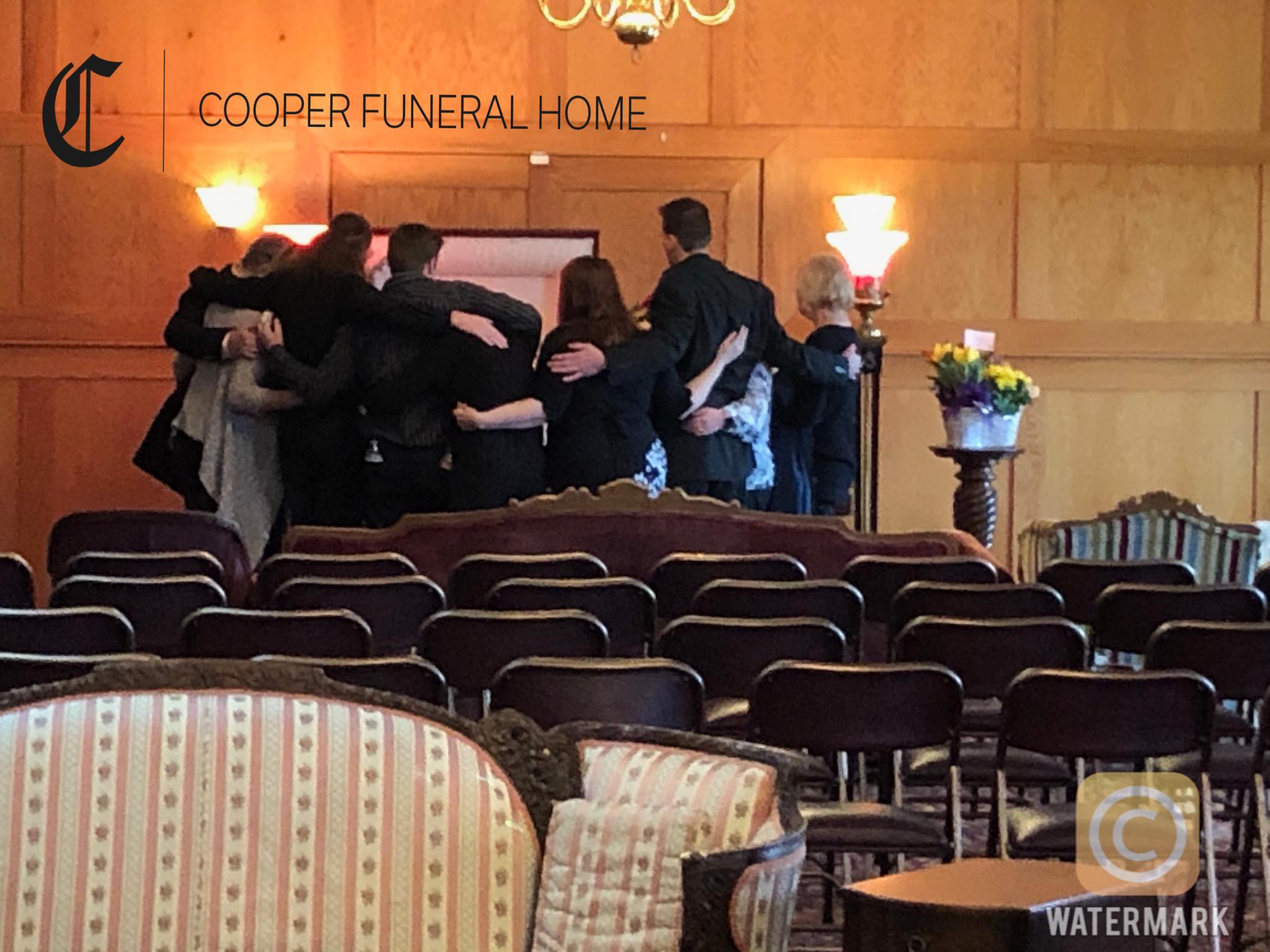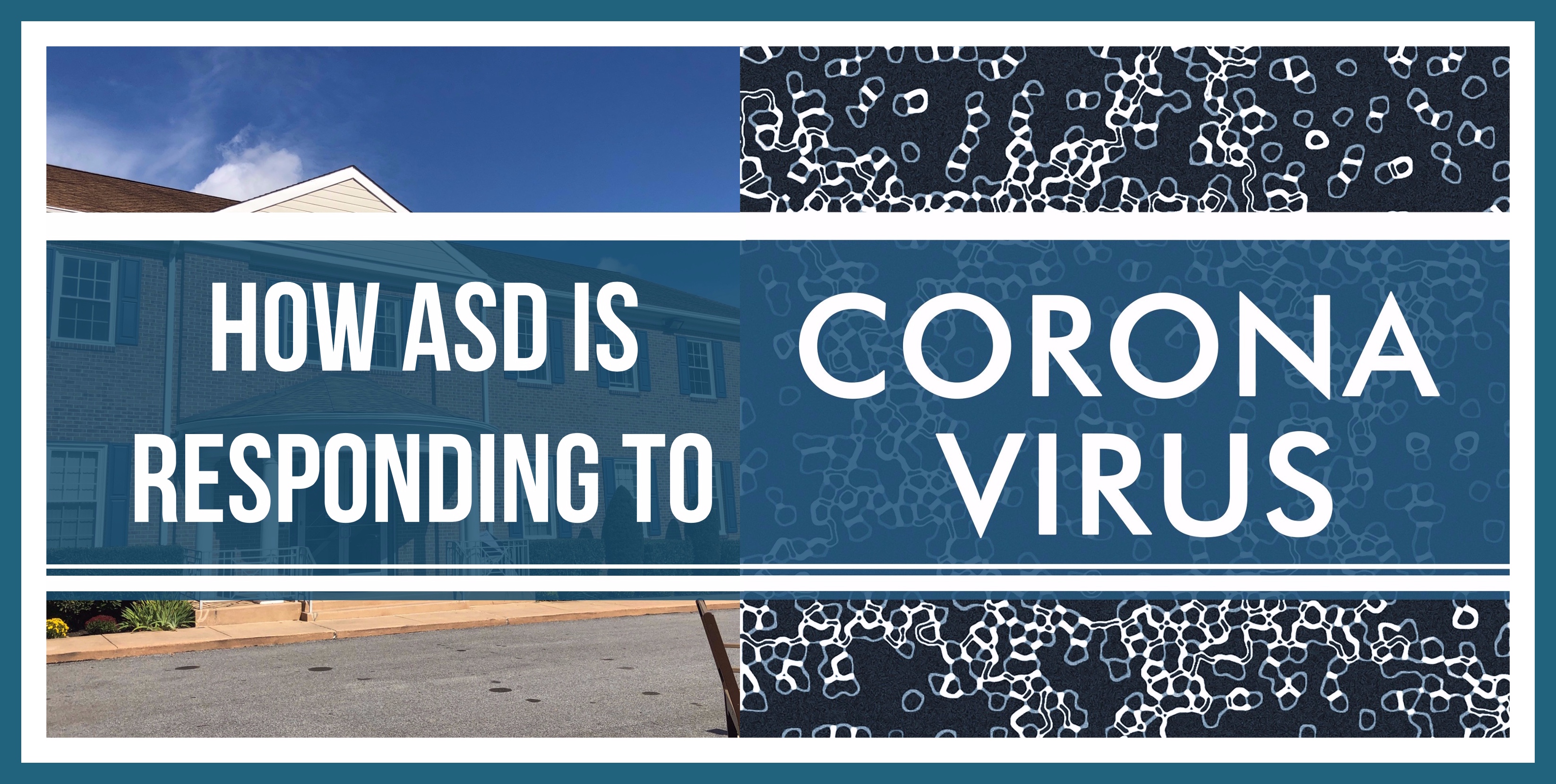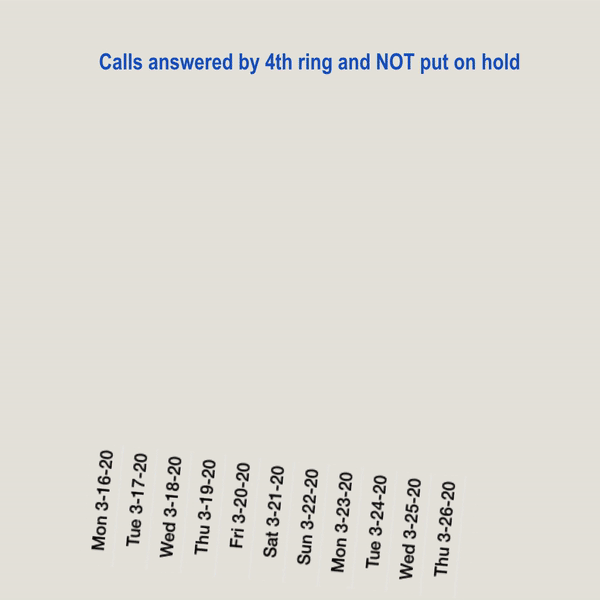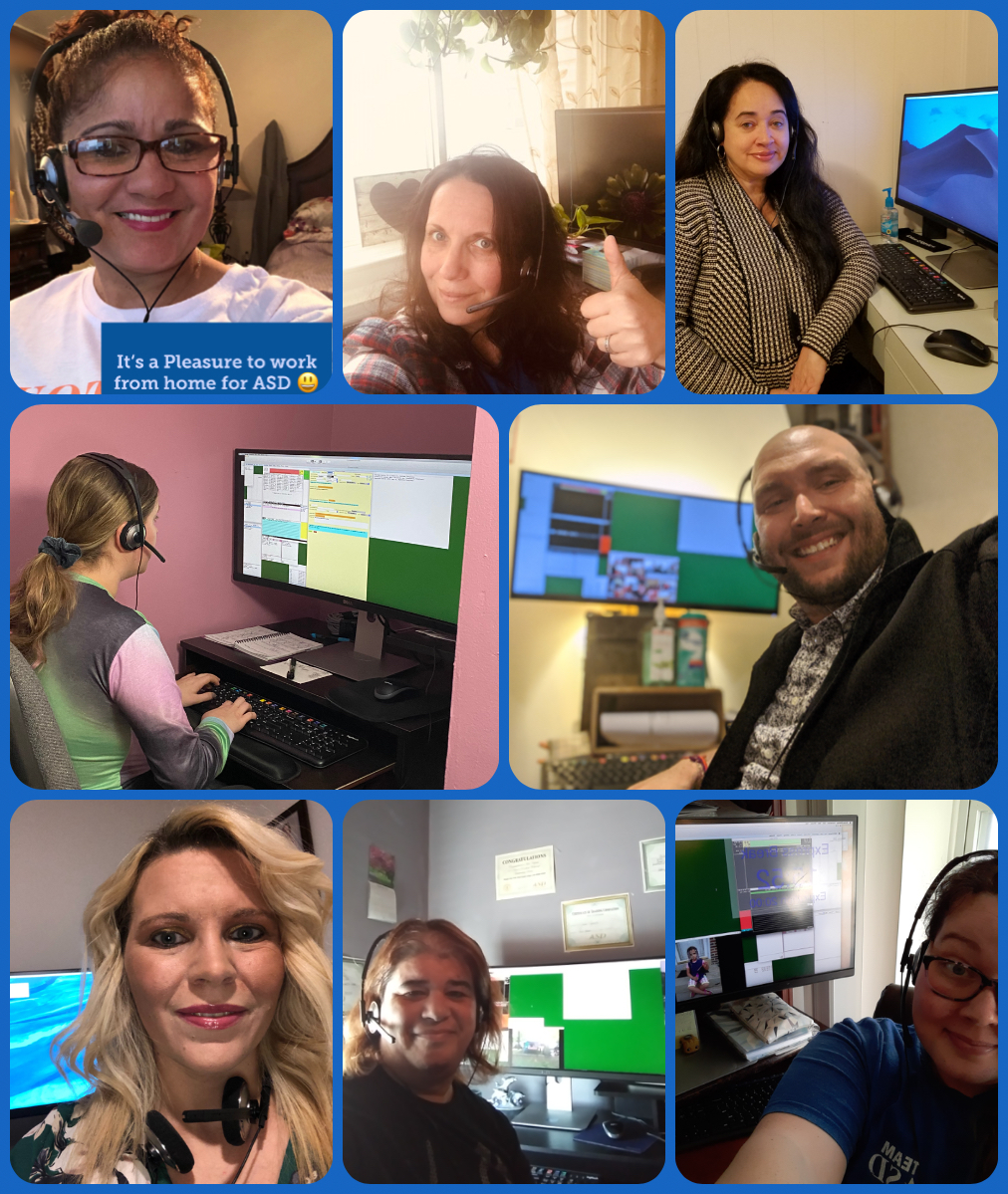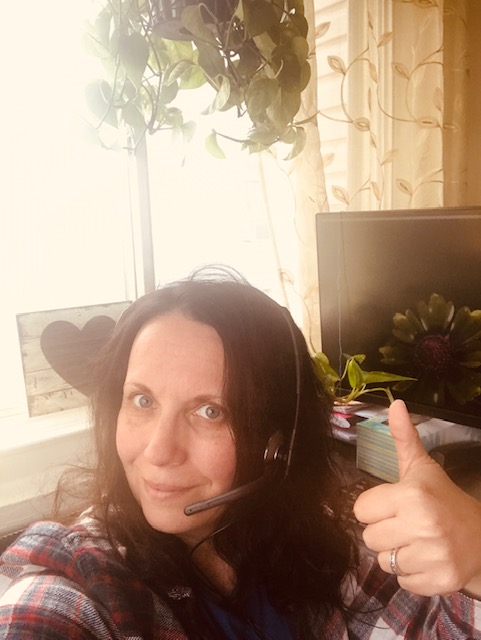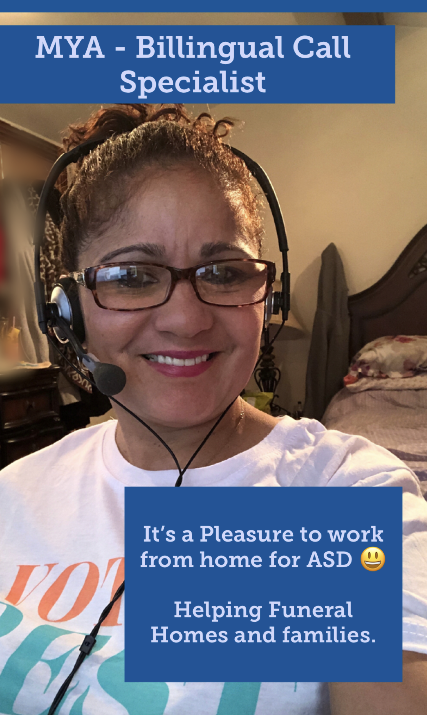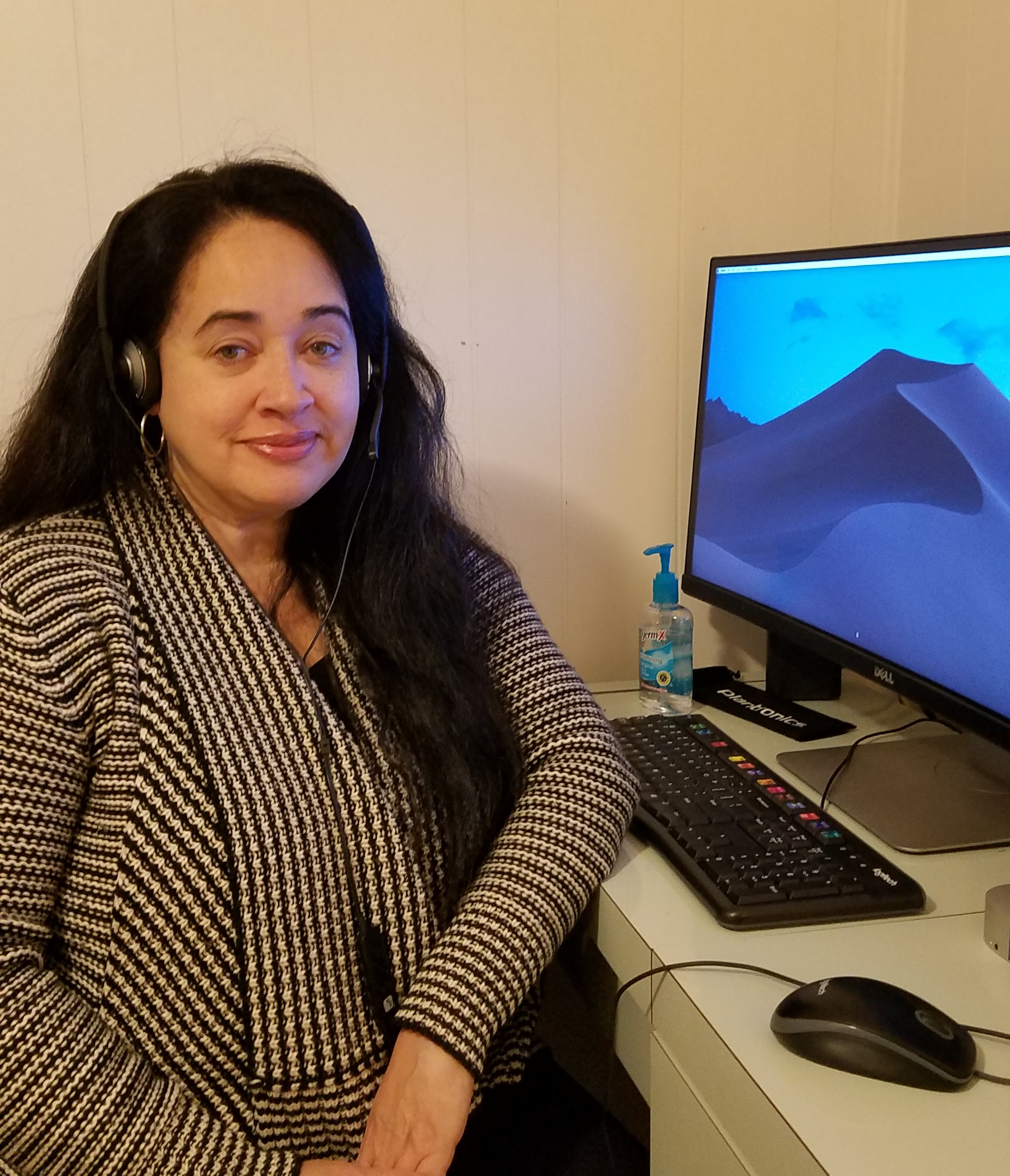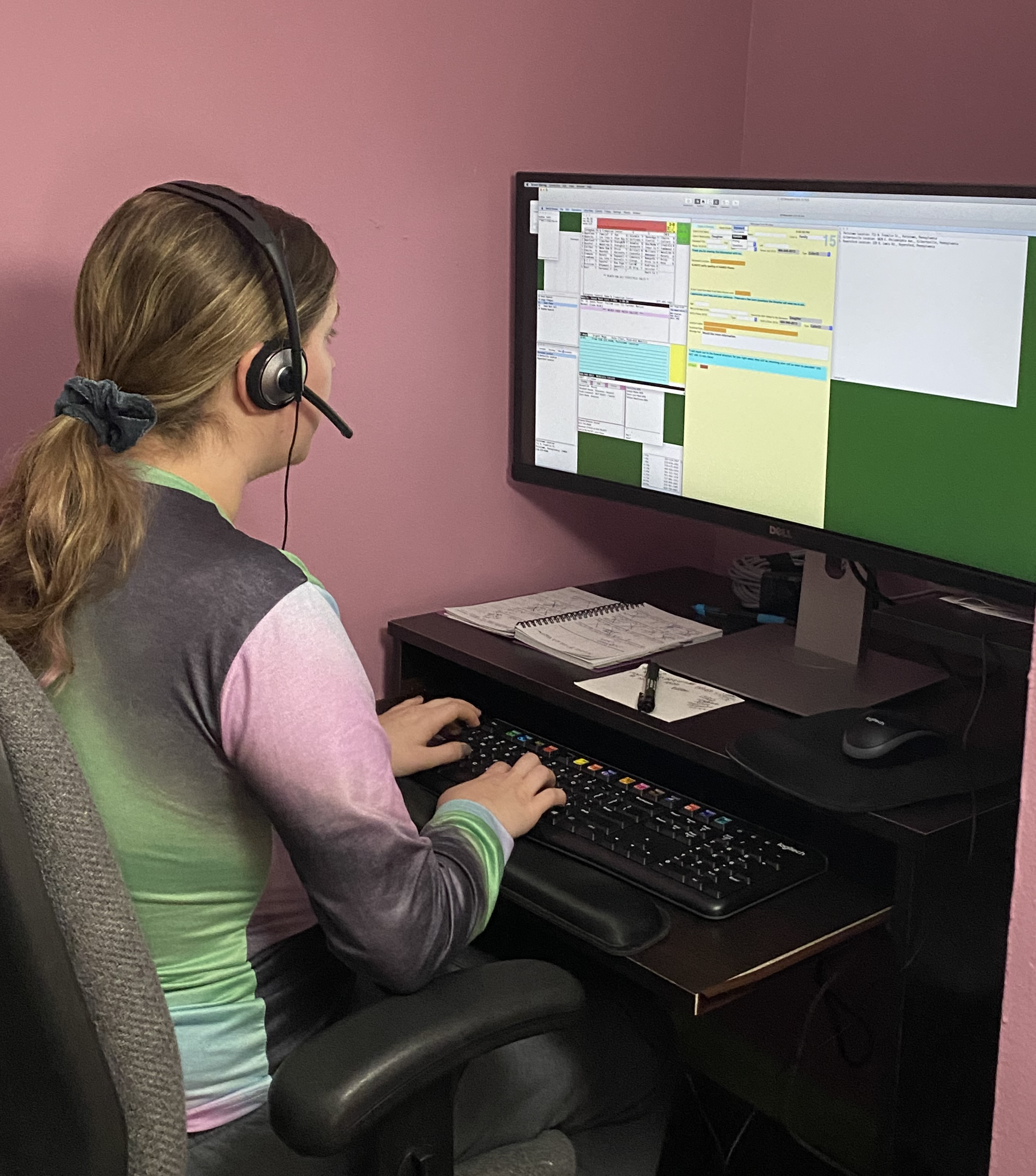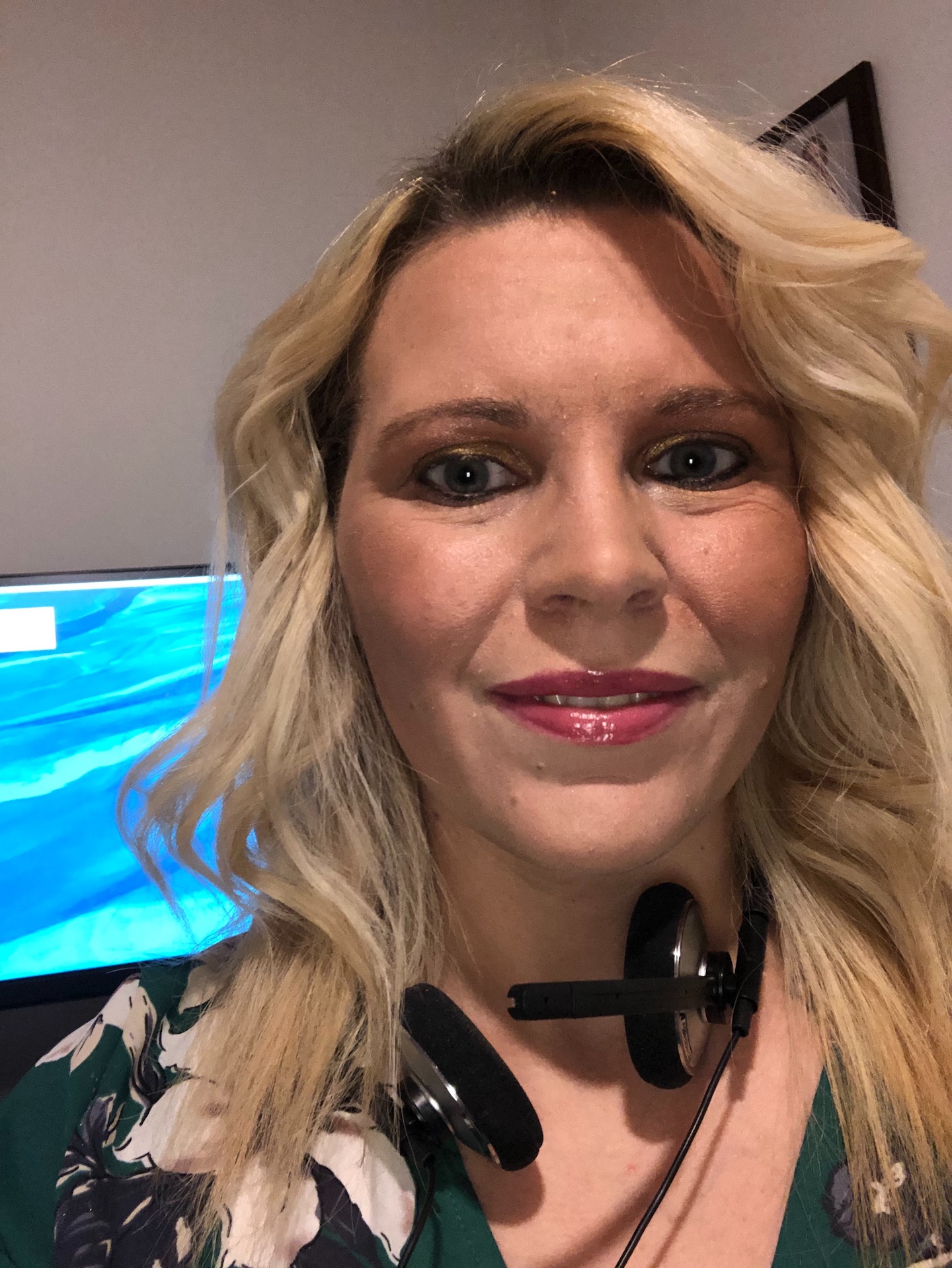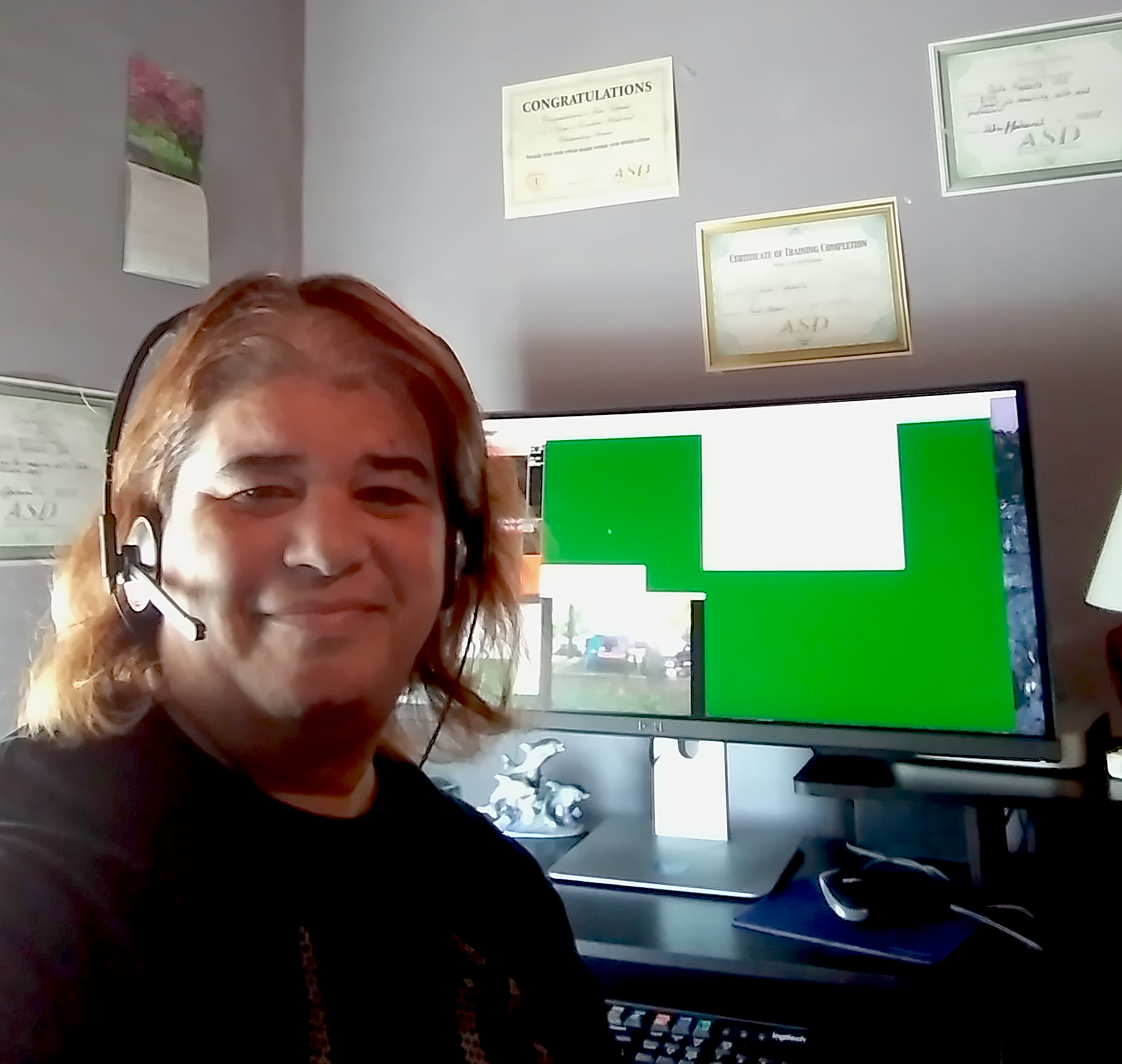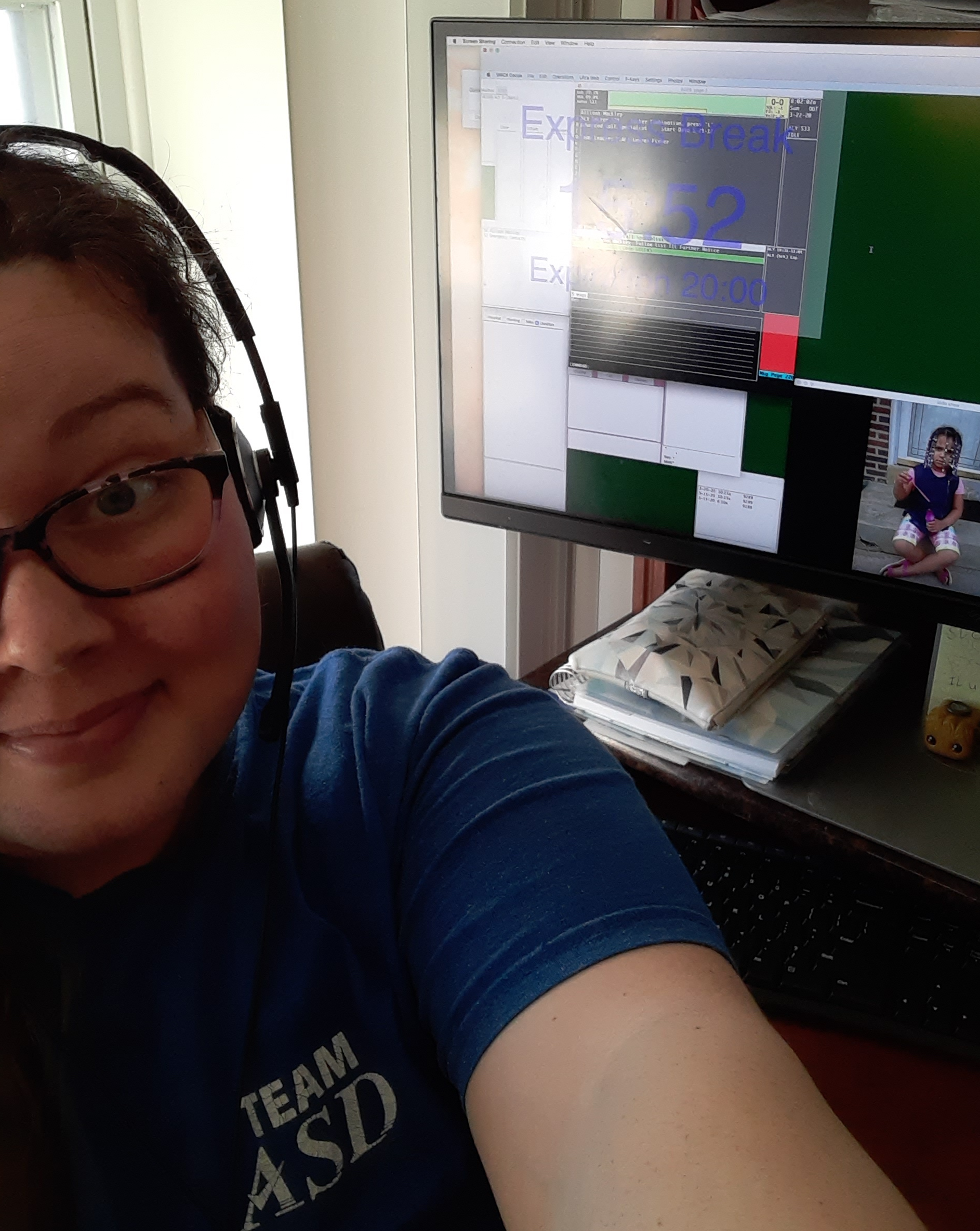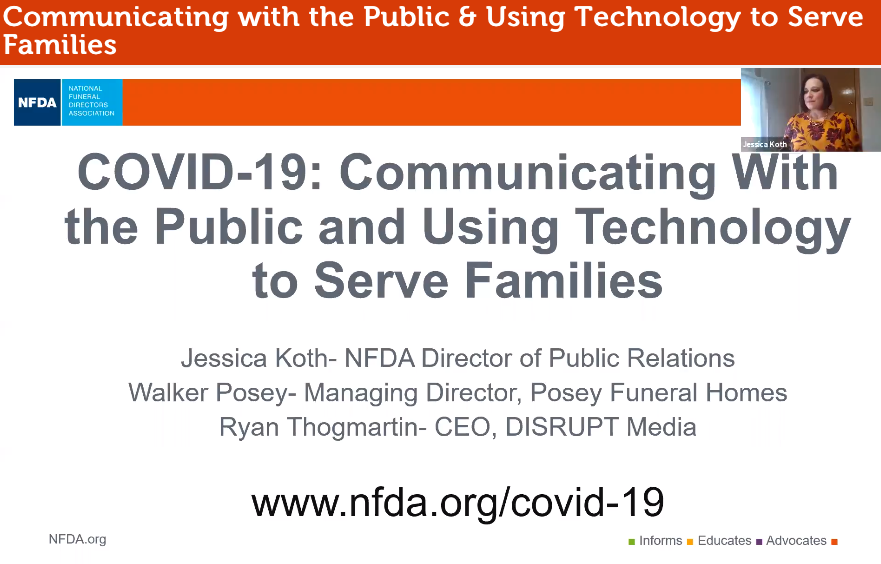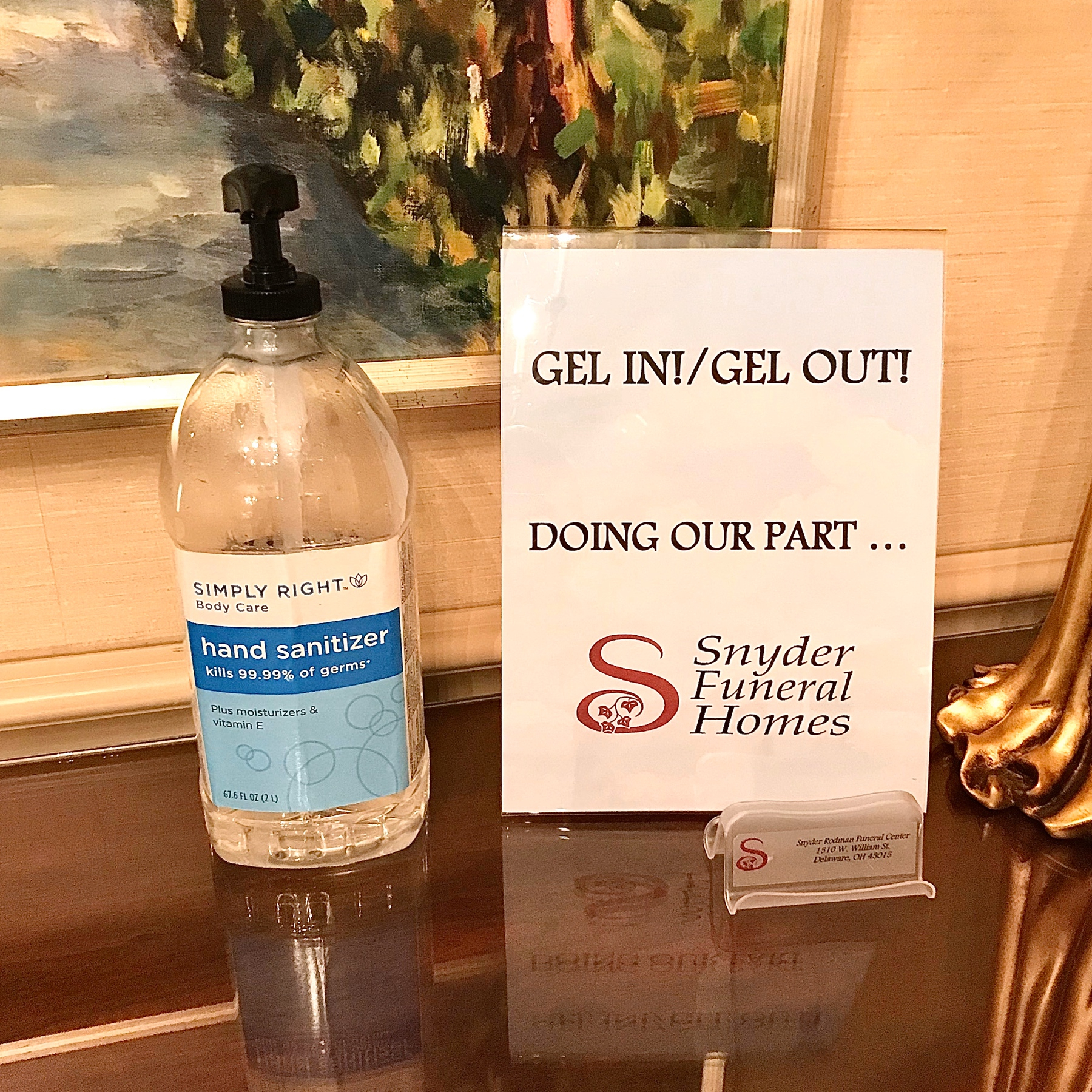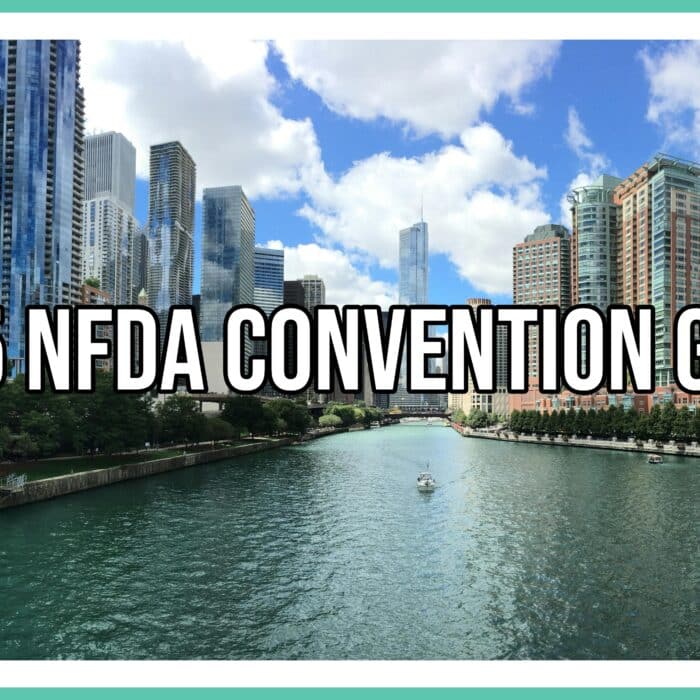Mar 27, 2020
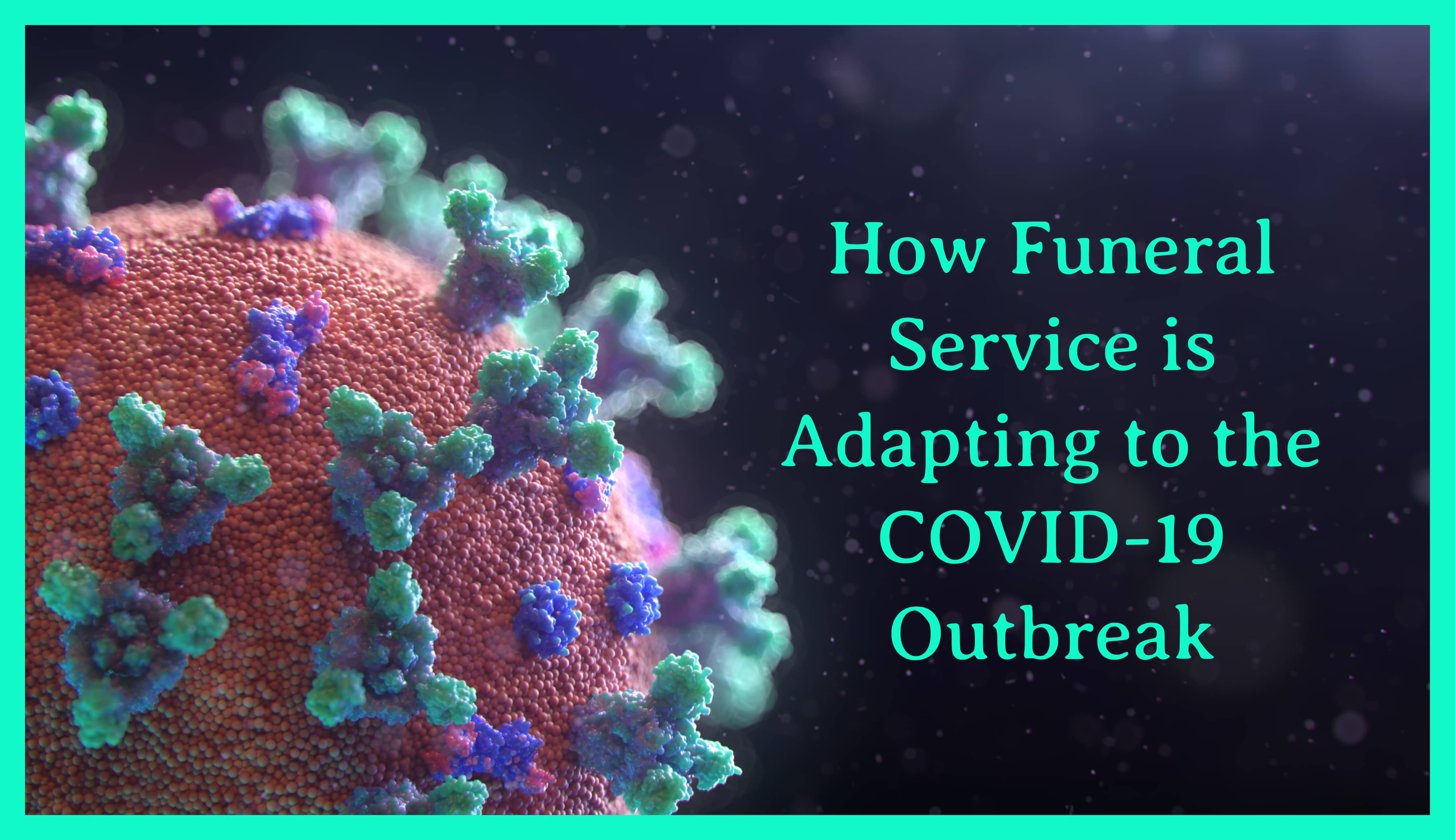
Last week, ASD published a blog on our website titled, 7 Ways Funeral Homes Are Being Impacted By The Coronavirus. In only a week’s time, it is astounding how much all of the funeral service challenges we wrote about have multiplied and escalated. With gathering restrictions becoming stricter (resulting in banned funerals in at least one state), PPE equipment becoming scarcer and funeral home staff becoming increasingly burned out, our profession has been forced to adapt in ways we never could have imagined. In this post, we wanted to once again shine a light on some of the unprecedented challenges funeral processionals are facing and also provide updates on how our answering service is weathering the storm.
Please note, the blog post you are reading was published on March 27th, 2020. COVID-19 news, updates and recommendations change very quickly, so we apologize if anything written below becomes out of date information as time goes on.
Funeral Home Associations Advocate for Death Care Professionals
One topic we’ve written about many times on ASD’s blog is how the importance of the funeral service profession is often overlooked by our society. The consequences of this has resulted in funeral directors being continually misrepresented while false information about their chosen profession is continually circulated. Now, with the outbreak of COVID-19, the stakes are much higher, with funeral professionals concerned about remaining in a position to aid in crisis while simultaneously worrying about their access to Personal Protective Equipment (PPE) as this pandemic continues.
Fortunately, funeral home associations are committed to advocating for funeral homes on a national, state and local level. In a month that has been largely domineered by negative updates and headlines, one silver lining to be found is in the hard work of the funeral home association staff that have tirelessly gone to bat for funeral directors. Like the funeral directors they fight for, these individuals should not be overlooked for the incredible strides they have made for our profession.
First, there was the announcement on March 19 that the Department of Homeland Security named mortuary workers “critical infrastructure workers” at the urging of the National Funeral Directors Association (NFDA). This ensured that funeral homes received special status to maintain their normal work schedule.
“The ability of funeral professionals to safely carry out their duties during a mass-fatality incident is paramount. We were very pleased to see NFDA’s efforts pay off when the federal government recognized mortuary workers as critical to the COVID-19 pandemic response,” said NFDA CEO Christine Pepper, CAE. “The role that funeral directors and cemetery and crematory workers are playing during the COVID-19 pandemic is critical. While their work may be overlooked, they are truly on the front lines in helping to care for pandemic victims and grieving families.”
Then, on March 23rd, the International Cemetery, Cremation, and Funeral Association (ICCFA) released important details related to how funeral professionals can ensure this special status is extended on a state and local level. With many states and communities issuing size restrictions on public gatherings and shelter-in-place orders, the ICCFA requested that all such orders include death care professionals in their list of “essential services.” In an effort to help funeral directors to receive this status, the association drafted a letter that deathcare professionals can send to state and local agencies to ensure the federal government recommendation is adopted on every level. The letter contained sample language state and local agencies can include in their orders that will ensure that deathcare businesses and related suppliers remain operational.
The ICCFA’s efforts were supported by funeral associations across the country who immediately began to forward the letter and important related information to their members. In addition to this, state funeral associations around the country signed a letter sent to U.S. Health and Human Services Secretary Alex Azar requesting high priority status for funeral service in the supply chain for Personal Protection Equipment (PPE) and continuity of operations during shelter in place orders.
According to Jessica Koth, spokesperson for the NFDA. “Those efforts are proving fruitful, with many states designating funeral professionals among critical infrastructure workers.”
Associations across the country have also requested vaccination priority once a vaccine becomes available. Many have sent similar letters to their state governor’s offices requesting elevated status in the supply chain to receive PPE. Others are holding “Virtual Town Hall” meetings to keep funeral directors informed and identify areas where members may need assistance.
With funeral professionals across the country feeling overwhelmed with new restrictions, logistical challenges and families grieving loved ones in the shadow of a pandemic, it is reassuring to know that these associations are advocating on their behalf to try to lessen the burdens they are carrying. We commend the NFDA, ICCFA and state associations for efforts they have made and will continue to make as this crisis continues.
Funeral Services in the Age of COVID-19
Funeral directors around the country are opening up about what it’s like serving families during this difficult and unprecedented time. From PPE shortages to gathering restrictions to the complicated grief families are facing, the strain on our profession is unlike anything funeral service professionals have encountered before. There is so much anxiety and uncertainty, but one thing that has eclipsed that is the dedication of funeral directors echoing loudly. Just about every day, a new article is published about how the deathcare profession has been impacted by this epidemic, and in every story there are always quotes from funeral directors about how nothing will stop them from responding to families in need.
Below we share some quotes, article links and photos that paint a vivid picture of what it’s like for funeral professionals on the front lines of the COVID-19 outbreak.
On the role of funeral service during a pandemic:
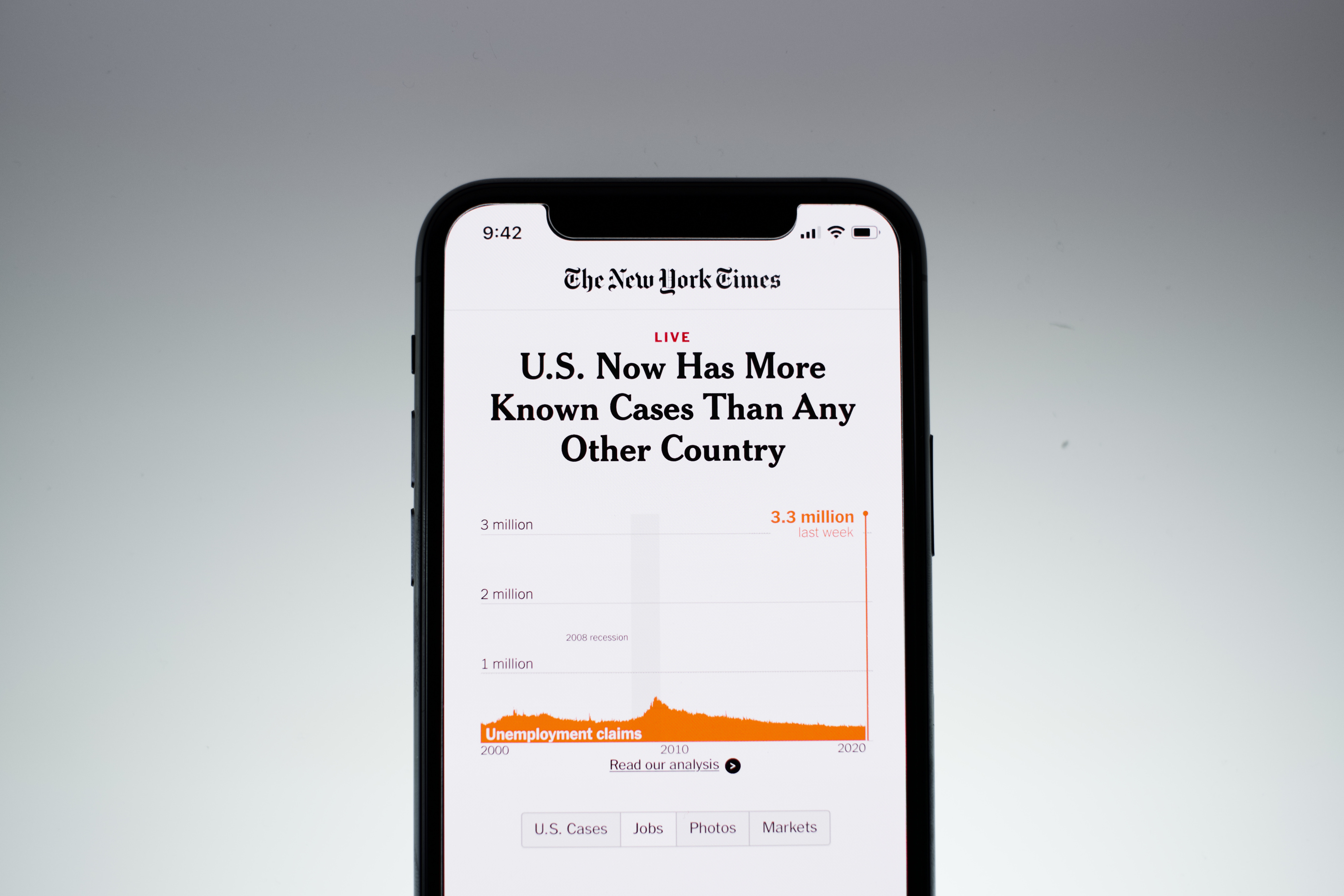
“During a pandemic, such as COVID-19, or any mass-fatality disaster, deathcare represents a critical part of the public/private partnership that will help our nation heal and recover.”-Christine Pepper, NFDA CEO.
From the Article: Funeral workers provide critical service but are at high risk of exposure to the coronavirus
__________________________
“A lot of people look at funeral directors as people just doing funerals. But if you think about it, we’re at the end chain of public health. When humans pass away, we’re the ones who take care of the remains, dispose of them, and register them.”-Stephen Kemp, Owner of Kemp Funeral Home & Cremation Services in Southfiled, MI.
From the Article: Funeral service professionals are the ‘last line of defense’ against the coronavirus — here’s how they’re bracing for the pandemic
__________________________
“The dead will be lovingly cared for by an industry that’s been practicing this for a long time.”– Amy Cunningham, Owner of Fitting Tribute Funeral Services in Brooklyn, NY.
From the Article: Virtual memorials and no hugs: the funeral industry prepares for coronavirus
__________________________
“Often times funeral professionals are kind of that lost profession that comes on the scene. When our first responders, our police, and our firemen are rushing to a crime scene or a place where there’s an incident occurring and others are running away, that funeral professional is the same person who is often times running or walking into that crime scene to kind of pick up the aftermath and help grieving family members deal with the loss and death of a loved one. It’s so important that we’re always reminded that part of the role of the funeral profession is to certainly take care of the dead and get them where they need to get to in a professional and safe manner, but also make sure that the living get to where they need to get to in a safe and professional manner, while taking care of and recognizing all of their grieving needs during that time.”–Mark Smith, President/CEO of McAlister-Smith Funeral Homes in Charleston, SC.
From the Article: Funeral homes remain open, but implement limited services in pandemic
__________________________
“We have to maintain the sanctity of life and how we mourn our losses and show respect for a life lived and a life well-lived.”–Matthew Stegall, Owner of Stegall-Berheide-Orr Funeral Homein Richmond, IN.
From the Article: Funeral homes continue their sacred duties among coronavirus changes
__________________________
“We’re still available 24/7, and we will do anything that we have to do to make a horrible time in their life a little bit more comforting with everything is going on today.”–Funeral Director Eric Kukuchka of Sheldon Kukuchka Funeral Homein Tunkhannock, PA.
From the Article: Funeral homes adapt to social distancing
__________________________
“My job is to do what the family wants me to do. I wouldn’t necessarily ask to delay because some people don’t have time to delay…As a country, as a state, as a city, we’ve stopped everything, but we can’t stop death.”-Rev. John Taylor, owner of Hawkins-Taylor Funeral Home in Lexington, KY.
From the Article: ‘We can’t stop death.’ But funerals must change as coronavirus spreads
__________________________
On the impact of gathering restrictions:
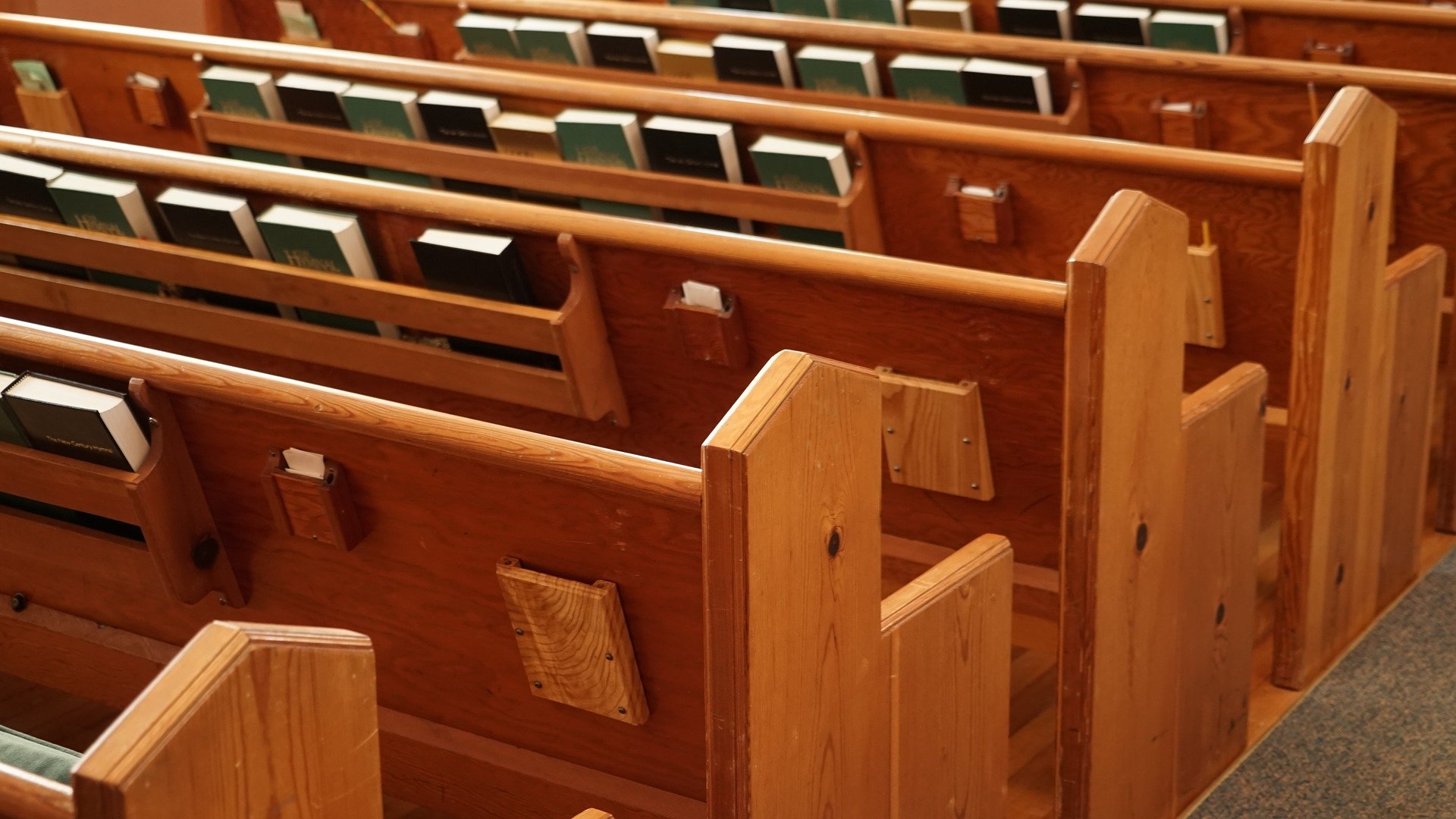
“We are taking all of the precautions that the CDC recommends. If they are having a visitation here, we tell them the limit is 10 people. It is a hard call, we are dealing with grieving families. This is not like other industries. When a family needs us, we need to be there.”-Gale Robinson, 3rd Generation Owner of Phillips-Robinson Funeral Home in Nashville, TN.
From the Article: Coronavirus and funeral homes: lots of Lysol and prayers, no handshakes or hugs
__________________________
“We will be trying to think creatively and find ways people can gather and grieve as a community without actually being together in a chapel, as they once were, seated side by side, hugging and crying and sharing boxes of tissues. You could hug pillows together, you could hug yourself on screen, you can relate to each other virtually. We’re going to perhaps need to, for the next couple of months, experiment with that kind of thing. If families are willing to do it.”–Amy Cunningham, Owner of Fitting Tribute Funeral Services in Brooklyn, NY.
From the Article: Virtual memorials and no hugs: the funeral industry prepares for coronavirus
__________________________

From the O’Connor Mortuary Blog:
“Just yesterday I saw something I’ve never seen before at a funeral for a young mom and her daughter, killed together in a car accident. Over a thousand people wanted to attend their service but the health precautions kept all but immediate family from attending the actual service. Hundreds of people gathered in pockets to webcast the service and line the streets of the procession. But they also did the most beautiful thing.
The pastor was deeply upset that the church would effectively be empty despite the tragedy and outpouring of love from the community. So, an idea came forward – “what if we fill the empty seats with yellow flowers?” Yellow was Rosa’s signature color. And so, each family that could not be present in the pews sent bouquets of yellow flowers to shine love in their place. The empty places were filled and a family was dearly loved in a visible and tangible way.”
From the blog post: Funerals in a time of quarantine
__________________________
“I have two services coming up where they were going to be big and public, but no longer. The families decided to slash and postpone the big-service invites and make what’s happening now private. Considering everything going on, it’s not a bad idea. You get a chance to grieve a death and then have a positive gathering months later, when things slow down, to remember your loved one.”-Walker Posey of Posey Funeral Directors in North Augusta, SC.
From the Article: How can you grieve without a funeral? As coronavirus restrictions become more strict, families make heartbreaking choices
__________________________
“What we offered was 10 at one time. Ten at, say, 2 o’clock, a maximum of 10, and then we could schedule another 10 for another time, 3 o’clock, which would give us time — we needed a certain amount of time to sterilize the facility.”-Michael Carter, Co-founder of Bradshaw-Carter Memorial and Funeral Services in Houston, TX.
From the Article: Coronavirus means funerals must wait: ‘We can’t properly bury our dead’
__________________________
“It’s not just funerals and family visitations that we’re concerned about at this time. It’s also the person-to-person activities such as making funeral arrangements with surviving family members. In those cases, we’re encouraging funeral homes to handle arrangements by Skype or online wherever possible.”-Randy Nash, Associate Director of the Tennessee Funeral Directors Association.
From the Article: Coronavirus and funeral homes: lots of Lysol and prayers, no handshakes or hugs
__________________________
On the grief their families are facing

“I’m seeing these families reeling in their isolation, and that’s really the hard part.”-C.R. Lyons, Owner of Lyons & Sons Funeral Directors in Danvers, MA.
From the Article: A new norm for funerals in the coronavirus age
__________________________
“A lot of people, at the time of grief, like to have a handshake. They’d like to have somebody to feel. And that’s not a possibility right now.”–Funeral Director, Pat Barton of Barton Family Funeral Service in Kirkland, WA.
From the Article: Virtual memorials and no hugs: the funeral industry prepares for coronavirus
__________________________
“The biggest challenge right now is this compounded grief. We do not know when the pandemic will end, and there will be no public memorialization until that time is reached. So, we have families grieving with the suddenness and tragedy of a death, compounded by the restrictions of the pandemic, only to be opened up in the future — to have it all over again when the public ceremonies begin.”–George Kelder Jr., Executive Director of the New Jersey State Funeral Directors Association.
From the Article: Are N.J. funeral homes prepared for a surge in coronavirus deaths?
__________________________
“We respectfully captured this picture this morning with permission from the family and it speaks a thousands words of what our families are going through. The empty chairs behind them representing those who could not attend due to the COVID19. God please continue to hold our families tight.”–Funeral Director, Carrie Cooper of Cooper Funeral Home in Alexandria, KY.
__________________________
“A very important part of our profession is helping families through the grief. Sometimes it is the most difficult thing families are ever going to face. We have set up a ‘compassion helpline’ for the families we serve. They can call 24 hours a day and speak to counselors who are there to help you with whatever you’re facing, whether that’s increased anxiety or grief.”-Fred Berry, President of Berry Funeral Home in Knoxville, TN.
From the Article: Funeral homes adjust to social distancing obstacles
__________________________
“Our sympathies go out to anyone who has experienced a loss and now has that extra burden of grief through an uncertain time. As difficult as this must be, we’re all in this together. If we just try to care and protect ourselves and others, better days will be coming.”– Joe DellaVecchia of DellaVecchia, Reilly, Smith and Boyd Funeral Home in West Chester, PA.
From the Article: Chester county funeral homes hit hard by pandemic
__________________________
On the shortage of PPE equipment:

“With the general public panicking, we can’t get masks, we can’t get cleaning supplies – these are things that we need here every day to take care of human remains…We have to be protected because we still have to stay healthy in terms of protecting the general public from outbreaks from human remains. But how are my healthy coworkers going to stay healthy if they don’t get access to the proper PPE?”-Stephen Kemp, Owner of Kemp Funeral Home & Cremation Services in Southfiled, MI.
From the Article: Funeral service professionals are the ‘last line of defense’ against the coronavirus — here’s how they’re bracing for the pandemic
__________________________
“Instead of using two sets of gloves, now it’s one person does the lifting, the other is there to observe. Yesterday, I was the employee who wore the gloves.”-Clay Dippel, Funeral Director at Bradshaw-Carter Funeral Home in Houston, TX.
From the Article: Coronavirus means funerals must wait: ‘we can’t properly bury our dead’
ASD Adapts to Support Funeral Homes Through the COVID-19 Pandemic
With all of the logistical challenges and difficult decisions funeral directors are facing now, one thing they won’t have to worry about through this pandemic are their telephone lines. ASD is running strong! Our answering service is located in Pennsylvania and you may have heard that our Governor, Tom Wolf, mandated that all non-life-sustaining businesses in PA must remain closed. Due to the crucial role we play in death care services and telecommunications, ASD is considered a life-sustaining business and may continue to operate under current lockdown orders.
Preparing for extreme weather events for years has provided us with abilities to seamlessly handle this unbelievable event. Currently, more than 90% of our staff are working safely from their own homes and we are positioned to run entirely outside of the office if the need arises. Rest assured, we will remain a reliable and dedicated partner to the funeral homes across the country who are counting on our service for telephone support through this crisis.
We currently have over 200 ASD staff working remotely in the safety of their home. On average, more than 95% of all incoming calls this week have been answered by the fourth ring.
ASD keeps a log of our Daily Stats on our Facebook page. When comparing the latest call statistics with data from before the pandemic hit, ASD has found that funeral homes are receiving 6% more phone calls currently. Click here to see more data on how ASD has handled the increased call volume caused by COVID-19.
Team ASD Working Remotely
We are doing our part here at ASD to promote social distancing with more than 90% of our staff working remotely from home. It has definitely been a blessing that our company figured out these remote capabilities before the COVID-19 outbreak so we were able to transition seamlessly. We’ve been sharing photos of our staff working from home through the pandemic to show you how Team ASD is adjusting to this new normal.
“So grateful for the opportunity to work especially during these difficult times. Having my plants around me and knowing my kids are home safe makes the days much easier. Thank you ASD!”-ASD Senior Call Specialist, Denise Bell, who has been a part of Team ASD since December 2009.
ASD Bilingual Training Specialist, Myrna Russi, who has been a part of Team ASD since September 2006.
“ASD provided us the opportunity to continue “answering life’s most difficult calls” during this unpredictable & some would say difficult time. ASD’s kindness during this time has been a blessing for my family. My dad, Craig, a local school bus driver, has been affected by the recent changes. There has been a sigh of relief heard around my household; my mom, high school aged sister, and dad; that we here at ASD may continue to assist our clients and those who rely on them most, no matter what the circumstances! I believe we (the ASD family & extended family, which includes clients and vendors, who I prefer to consider family/friends) all will do our part in the coming days to lead us to face towards these ongoing concerns with innovation, compassion, & strength TOGETHER!”– ASD Training Specialist, Salvatore Monastra, who has been a part of Team ASD since October 2018.
“Working remotely has many benefits. Some benefits are no long stressful commutes, which means we are well rested and ready to start taking calls on time. We also have the flexibility to cover shifts 24 hours a day at the last minute if needed. This ensures that there is plenty of coverage to handle every call that comes through in a timely and professional manner. Working remotely means you are in a quite environment where you can give each caller your undivided attention. Weather is never an issue. Rain or snow…sleet or hail…we will handle every call without fail.” -ASD Bilingual Advanced Call Specialist, Noemi Comacho, who has been a part of Team ASD since June 2018.
ASD Training Specialist, Paige Gillespie, who has been a part of Team ASD since April 2018.
“The best word I can currently think of right now with so many people not earning any income is blessed. So thankful for ASD and the flexibility they offer. Working from home is truly a blessing – and ASD provided everything to make working from home possible. I truly feel blessed beyond words to still be able to earn income with everything happening.” –Senior Call Specialist, Amy Whitby, who has been a part of Team ASD since October 2015.
“I love the ability to work from home in this time to make sure I keep heathy!” –Training Specialist, Julia Kapusta, who has been a part of Team ASD since June 2017
“Coronavirus or not, we got this! #TeamASD” –Advanced Call Specialist, Allison Mackley, who has been a part of Team ASD since May 2017.
NFDA and MKJ Marketing Offer COVID-19 Communication Strategies for Funeral Homes
Both MKJ Marketing and the NFDA provided beneficial webinars last week to help funeral homes manage their communication through the COVID-19 pandemic. MKJ Marketing offered their free webinar on Thursday which offered 18 ways funeral homes across the country can demonstrate leadership and sensitivity during this crisis.The webinar was filled with MKJ’s best practices and advice that funeral homes can use during this chaotic time. If you could not attend the webinar, MKJ’s publication, The Funeral Leader, has summarized some of the important points that were shared. Click here to read the webinar recap.
Last Friday, NFDA also provided a free webinar that was titled, COVID-19: Communicating with the Public and Using Technology to Serve Families. The webinar featured NFDA Director of Public Relations, Jessica Koth, Funeral Director, Walker Posey, and DISRUPT Media CEO, Ryan Thogmartin. More than 500 funeral directors tuned in to hear Jessica, Walker and Ryan discuss live streaming funeral services, using social media to proactively communicate with the community, and remaining transparent throughout the COVID-19 outbreak. The NFDA webinar recording is available through the NFDA website and Facebook page. Click here to watch the recording on the NFDA COVID-19 Webinar page.
We encourage you to click the links above to explore both webinars. We’ve also broken down some of the key takeaways below for you:
Provide live streaming services and other memorial options:This is becoming a must-have option for many families. You can use Facebook, Skype or funeral streaming vendors to live stream funerals. Offering this option to families preserves the value of the service. You can find webcast authorization forms on the NFDA website. In addition to live streaming, DVD photo memorials and online condolences are going to be more valuable to families in the age the social distancing.
Post proper signage around your funeral home:Use signs to communicate important information to funeral home visitors about current restrictions about hand hygiene and social distancing. You can find downloadable signs that you can post as is through both the NFDA and MKJ Marketing.
Use Social Media to stay in touch with your community: Social media provides a direct channel to families in your local area and can be a very useful tool in educating others about the role of funeral service in this pandemic. Use Facebook to notify your community of all updates from the government about funeral service. Maintaining a social media presence lets your community know you are there serving and staying vigilant.
Use technology to plan funeral services: Perform non-contact arrangements by taking advantage of the latest technology solutions. Send photos of deceased to confirm their identity through a secure online portal. Obtain e-signatures for authorizations and contracts. Utilize services like Docusign. Promote e-payments. Use services such as SRS’s Family Link service to collaborate with families you are serving.
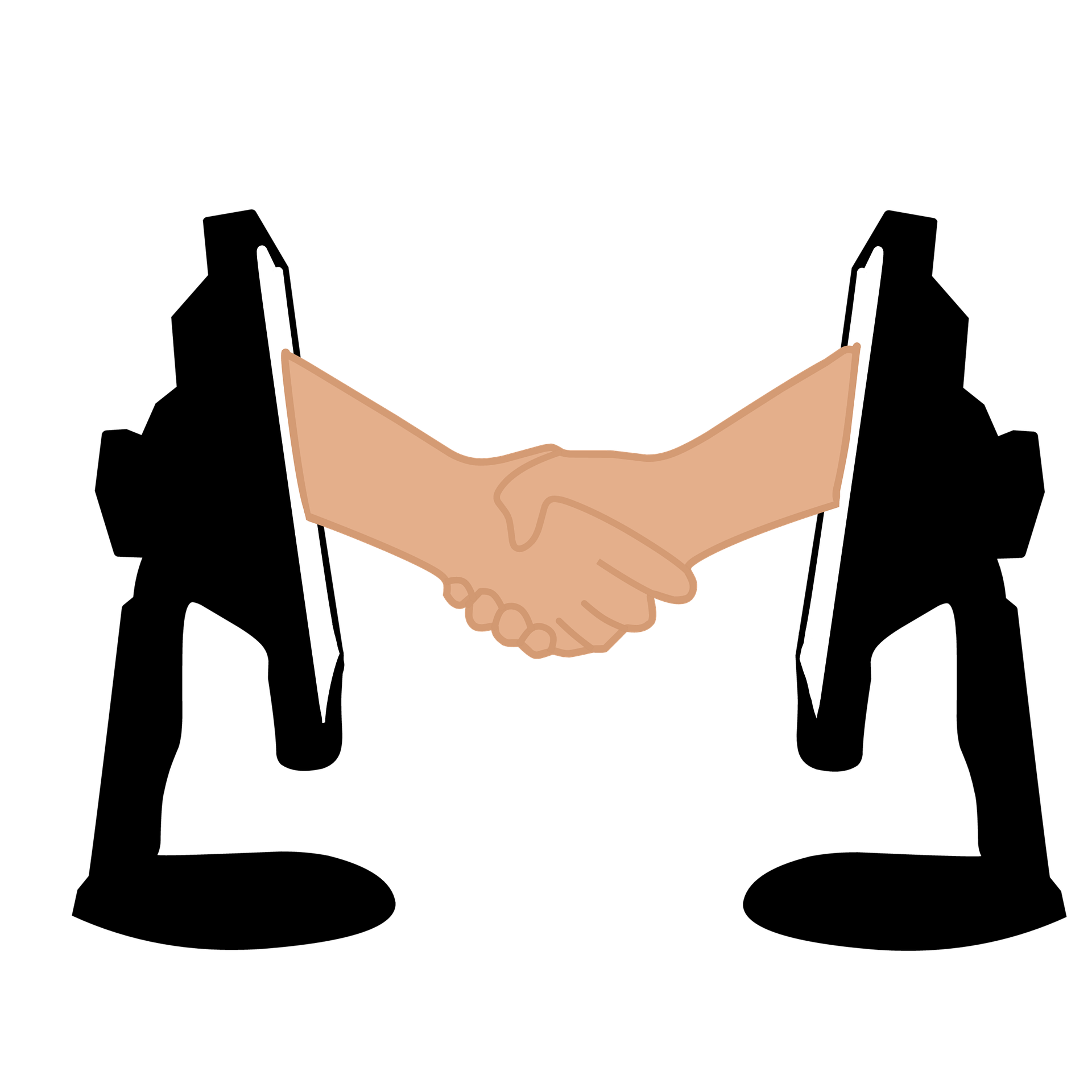
Train your staff on how to calm concerns: Review your funeral home’s communication practices to ensure everyone is on the same page when answering questions. Be sure to use a calm tone of voice, repeat reminders more than once, do not over-promise, put agreements into writing and establish trust as early as possible.
Know what to say to the media: Many media outlets are profiling how funeral homes are responding to the pandemic. Ensure that you and your staff are prepared to be interviewed.
Promote the good: Look for opportunities to shine a positive spotlight any chance you can. Honor first responders and healthcare workers. Voice your support for them. Create a dialogue centered on how your community can support isolated senior citizens. Empower your community to think of something that is positive (for instance, share photos of families spending time together indoors or of your staff getting takeout from local restaurants).

How has your funeral home been impacted by COVID-19? We want to hear your story about how you and your staff have adapted to serve the needs of families. Please share in the comments below.
RELATED READING:
7 Ways Funeral Homes Are Being Impacted by the Coronavirus
How ASD is Responding to the Coronavirus Outbreak
Tips on How to Maintain “Business as Usual” During a Crisis
About The Author
Jess Farren (Fowler)
Jess Farren (Fowler) is a Public Relations Specialist and Staff Writer who has been a part of the ASD team since 2003. Jess manages ASD’s company blog and has been published in several funeral trade magazines. She has written articles on a variety of subjects including communication, business planning, technology, marketing and funeral trends. You can contact Jess directly at Jess@myASD.com
